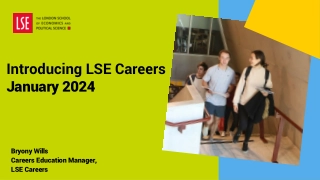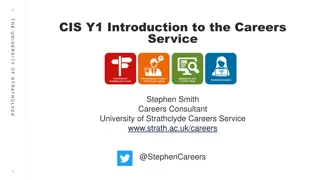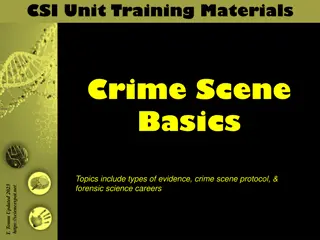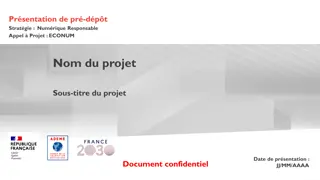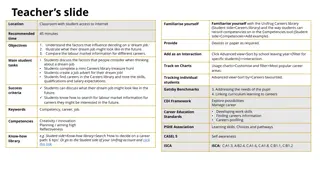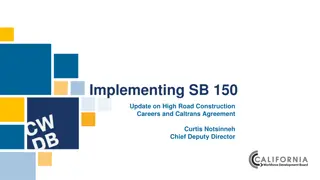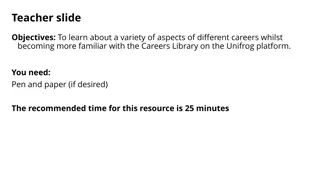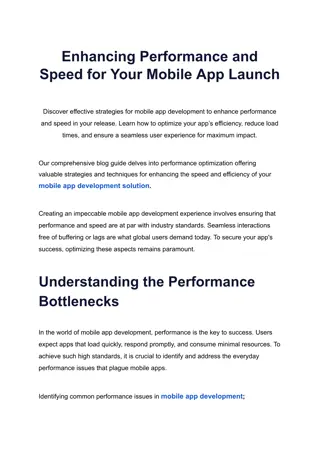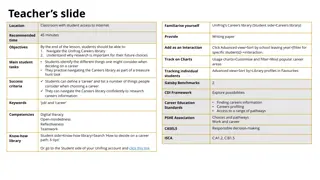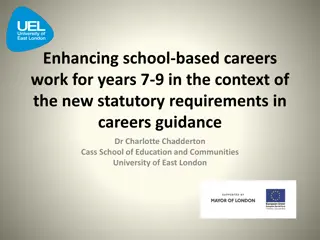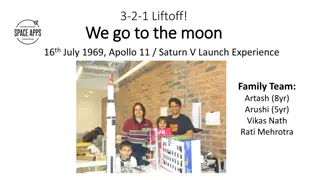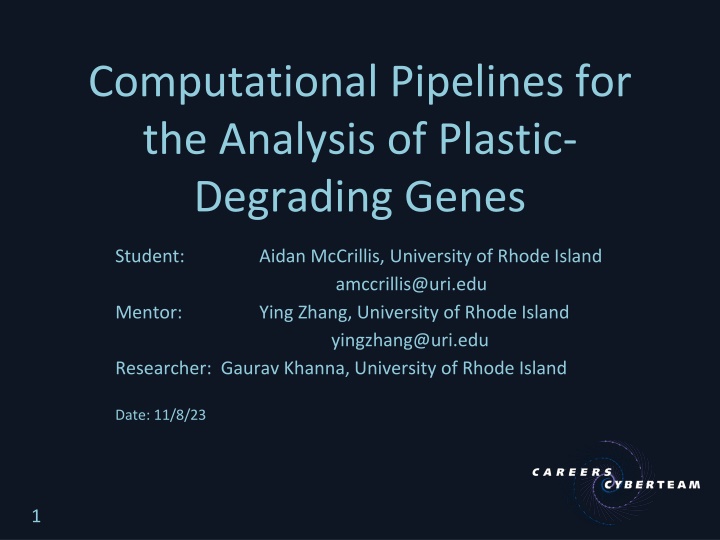
Plastic Degrading Genes: Computational Pipelines for Analysis
This research project focuses on developing computational pipelines for the analysis of plastic-degrading genes as a solution to the widespread issue of plastic pollution in the oceans. By utilizing metagenomics and workflow optimization with Snakemake, the project aims to identify and study genes from microbes that can potentially degrade plastics, particularly microplastics. The milestones include scoping, tool development, testing, and analysis, with a timeframe spanning from October 1st, 2023, to June 1st, 2024.
Uploaded on | 0 Views
Download Presentation

Please find below an Image/Link to download the presentation.
The content on the website is provided AS IS for your information and personal use only. It may not be sold, licensed, or shared on other websites without obtaining consent from the author. If you encounter any issues during the download, it is possible that the publisher has removed the file from their server.
You are allowed to download the files provided on this website for personal or commercial use, subject to the condition that they are used lawfully. All files are the property of their respective owners.
The content on the website is provided AS IS for your information and personal use only. It may not be sold, licensed, or shared on other websites without obtaining consent from the author.
E N D
Presentation Transcript
Computational Pipelines for the Analysis of Plastic- Degrading Genes Student: Aidan McCrillis, University of Rhode Island amccrillis@uri.edu Ying Zhang, University of Rhode Island yingzhang@uri.edu Researcher: Gaurav Khanna, University of Rhode Island Mentor: Date: 11/8/23 1
Pipelines for Plastic Degrading Genes There a 399,000 tons of plastics in the ocean. 69,000 tons of this are microplastics (Buchholz, 2022). Microplastics can t be removed from the ocean easily. Plastics are durable and don t degrade well, so they ll trickle down through the ecosystem Microbial degradation is a possible solution to this problem 2
Pipelines for Plastic Degrading Genes How can these genes be obtained? Its estimated that less than 2% of microbes can be cultured (Wade, 2002) Metagenomics is a solution to this problem Random sampling of genes directly over time (September 2017 - March 2020) rather than culturing 3
Pipelines for Plastic Degrading Genes This project s goal is to produce a workflow to make the analyses on this Narragansett Bay set reproducible. 4
Pipelines for Plastic Degrading Genes Why a workflow? Without a workflow, the scripts wouldn t be ordered and it would be harder to run Workflow allows easily reproducible results as well as being able to save parameters Easy to work with as Snakemake allows selection of output 5
Pipelines for Plastic Degrading Genes Milestone 1: Determine project scope, Snakemake work environment, launch presentation. Milestone 2: Bioinformatics tool assembly and testing, finalize pipeline design. Milestone 3: Complete working prototype, project git. Milestone 4: Extensive testing and debugging, application and data analysis. Milestone 5: Wrap up development, update project git and documentation, wrap presentation. 6
Pipelines for Plastic Degrading Genes Timeframe October 1st 2023 June 1st 2024 7
Pipelines for Plastic Degrading Genes What I hope to learn Getting more comfortable with HPC systems and Bash Getting comfortable with snakemake for future analyses Good practice for Bioinformatics research 8
Pipelines for Plastic Degrading Genes Goals for Next Month Start working on pipeline design and work on bioinformatics tool testing. 9
Pipelines for Plastic Degrading Genes Help needed (if any) - No help needed right now 10
References Wade W. Unculturable bacteria--the uncharacterized organisms that cause oral infections. J R Soc Med. 2002 Feb;95(2):81-3. doi: 10.1177/014107680209500207. PMID: 11823550; PMCID: PMC1279316. Buchholz, P.; Zhang, H.; Perez-Garcia, P.; Nover, L.-L.; Chow, J.; Streit, W.R.; Pleiss, J. Plastics degradation by hydrolytic enzymes: The Plastics-Active Enzymes Database-PAZy. Proteins 2021, 90, 1443 1456. Retrieved from: https://onlinelibrary.wiley.com/doi/10.1002/prot.26325 11

